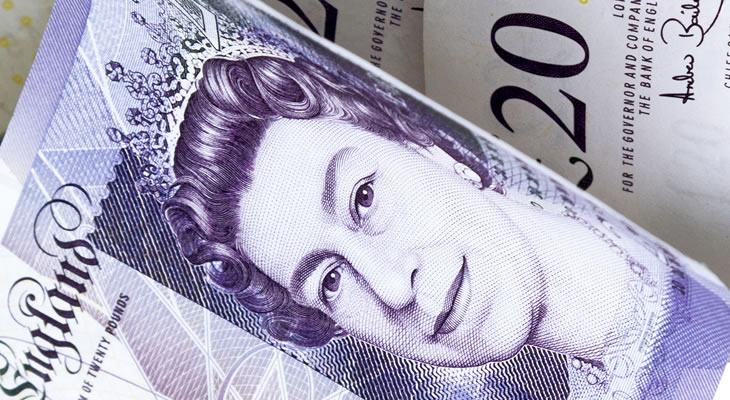Slump in UK Services PMI Limits Pound Sterling Euro (GBP/EUR) Exchange Rate Upside
In a blow to confidence in the UK economy November’s services PMI unexpectedly plunged from 52.1 to 50.7, limiting the appeal of Pound Sterling (GBP).
With the service sector falling dangerously close to a state of stagnation the economy looks set to experience a weaker fourth quarter.
As the PMI fell to a 28-month low, driven by declines in business activity and orders, this reflected an increased sense of uncertainty over Brexit.
Chris Williamson, Chief Business Economist at IHS Markit, noted:
‘A sharp deterioration in service sector growth leaves the economy flatlining in November as Brexit concerns intensified. Measured across services, manufacturing and construction, the survey results suggest that the pace of economic growth has stalled. With the exception of July 2016, when business slumped in the immediate aftermath of the EU referendum, November saw the worst performance since February 2013.’
All in all, this suggests that the economy is likely to remain under pressure ahead of the March 2019 deadline, limiting the upside potential of the Pound Sterling to Euro (GBP/EUR) exchange rate.
Euro (EUR) Under Pressure in Spite of Surprise Italian Service Sector Growth
Although Italy’s services PMI unexpectedly returned to a state of expansion in November, climbing from 49.2 to 50.3, this failed to boost the Euro (EUR).
Worries over the outlook of the Italian economy remain in spite of this modest improvement, even as the Italian government showed signs of a willingness to compromise on its 2019 budget proposal.
Signs continue to point towards a loss of momentum within the Eurozone economy as a whole, in spite of an upward revision to some of November’s finalised services PMIs.
This maintained pressure on EUR exchange rates, fuelling bets that the European Central Bank (ECB) will leave interest rates on hold for longer.
With no change forecast for the finalised third quarter Eurozone gross domestic product the Euro may struggle to find a rallying point ahead of the weekend.
Pound Sterling (GBP) Exchange Rates Vulnerable Ahead of BoE Inflation Survey
The GBP/EUR exchange rate could come under greater pressure on the back of Friday’s Bank of England (BoE)/TNS inflation attitudes survey, however.
As Brexit has weighed increasingly on domestic sentiment the survey could paint a more pessimistic picture of the economic and inflationary outlook.
With the UK economy already showing signs of a slowdown the chances of the BoE raising interest rates again in the months ahead look limited.
Even so, if the inflation survey suggests that price pressures are likely to rise further over the course of the next year this could give investors incentive to bet on the prospect of BoE action.
If the inflation rate rises further above the BoE’s 2% target this could pressure policymakers into further monetary tightening, to the benefit of the Pound.
Political tensions also look likely to drag on the Pound Sterling to Euro (GBP/EUR) exchange rate, however, as MPs debate Theresa May’s proposed Brexit plan.


Comments are closed.